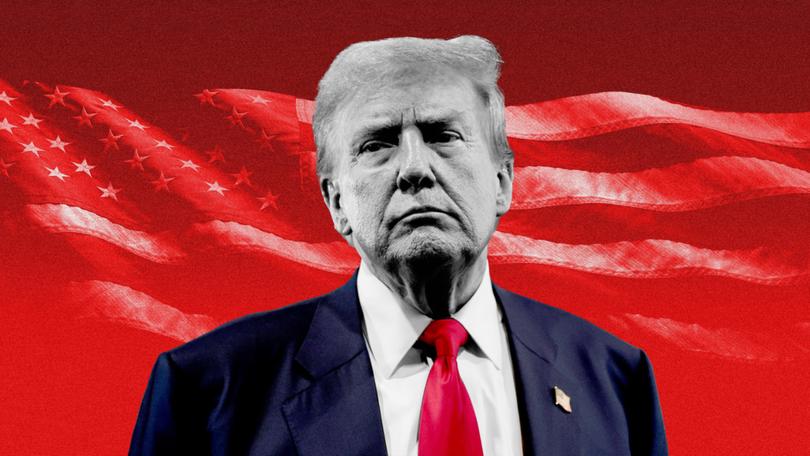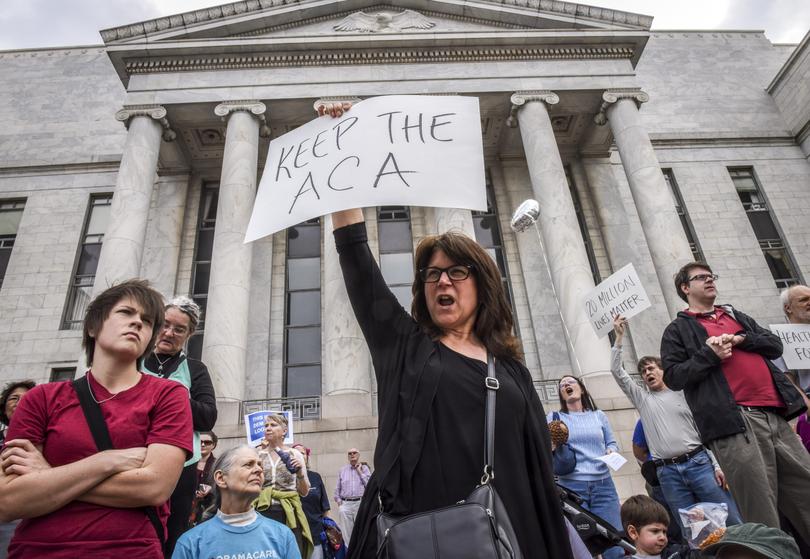THE WASHINGTON POST: Donald Trump can keep campaign promises or be popular. Not both
JENNIFER RUBIN: The question remains, whether Trump goes down a disastrous road to economic ruin or, instead, chooses a more popular agenda that could endear him and his party to a larger swath of voters.

President-elect Donald Trump has a fundamental choice to make. He can make good on a number of the agenda items on which he ran and/or which his supporters advanced.
He could, for example, enact draconian, across-the-board tariffs; begin massive roundups and deportations of law-abiding “dreamers”; repeal the Affordable Care Act and major bipartisan legislation passed under President Joe Biden; and enact a new round of massive tax cuts for big corporations and wealthy individuals.
These steps no doubt would satisfy big donors, right-wing ideologues and his radical vice president. However, in doing so, he would likely make himself extremely unpopular, induce economic and social chaos and create political problems for his party in the 2026 midterms.
Sign up to The Nightly's newsletters.
Get the first look at the digital newspaper, curated daily stories and breaking headlines delivered to your inbox.
By continuing you agree to our Terms and Privacy Policy.The question remains, therefore, whether Trump goes down a disastrous road to economic ruin or, instead, chooses a more popular agenda that could endear him and his party to a larger swath of voters.
The Affordable Care Act is a case in point. In 2017, Trump spent the better part of the year trying to repeal it, only to create a nationwide backlash. He ultimately failed to take away health care coverage from tens of millions of Americans. Since then, tens of millions more Americans have gained coverage, the ACA has gained in popularity and innovations have helped control out-of-pocket costs. That largely explains why, in the campaign debate, Trump pretended to be the great defender of the ACA, a stunning lie that nevertheless demonstrated awareness of the folly of repealing legislation that has now been in effect for nearly 15 years. By Trump’s own admission, there is no viable alternative.

Trump could repeat the folly of 2017, unleashing a backlash among millions of his own supporters, sending shock waves through the American health care system and dismaying small and large business owners who have come to depend upon available coverage for their employees. But even to Trump, that might seem like too high a political price. The alternative would be to make some minimal changes to the ACA, claim credit for its ongoing success and convince his easily duped supporters that the success of the program is his doing.
As for his mass deportation plan, nothing was as near and dear to the hearts of legions of white supremacists and aggrieved MAGA supporters looking for a scapegoat for their economic ills.
That said, the price tag could be in the hundreds of billions; a dragnet of this size would require a sweeping police state, deprive Americans of millions of workers, upset economic progress and create images as devastating as those we saw during the child separation debacle (which, if you recall, he eventually had to abandon).
This is not to say that he won’t try it. However, a false start and failure could well colour the remainder of his presidency, leaving him politically weakened, reviled and coping with a self-made economic crisis. Should he persist in a massive violation of human rights, the political and economic consequences could be devastating.
Trump could, instead, choose to co-opt the very border bill he opposed, take credit for any reduction in crossings and avoid the parade of horribles that mass deportation would entail. This would certainly be more acceptable to his tens of millions of Hispanic supporters who insisted that mass deportation was never a serious idea.
This is not to say Trump will accept the path of least resistance. However, the trap of running on fantastical and destructive policies means he will either have to disappoint supporters or hand Democrats a golden opportunity to ride to the rescue of millions of voters Trump hoodwinked.
Trump’s absurd tariff plan poses a similar conundrum. Should he try to enact across-the-board tariffs that cost consumers thousands of dollars each year, he will incur their wrath and interrupt the economic recovery. His billionaire enablers would be aghast. Maybe, a few isolated sanctions directed at China would allow him to save face and avoid the economic catastrophe his daft idea would bring about.
As for taxes, the 2017 tax cuts will expire at the end of next year. Trump and Republicans can choose to extend them, using the reconciliation process and fudging budget numbers to make it appear cost-neutral within the 10-year budget window. That comes with extreme risks, however, given that the national debt (due in large part to the first round of tax cuts) has exploded.
Former Fed governor Richard Fisher has warned that massive new tax cuts would result in fiscal disaster and more inflation. Likewise, the Center for American Progress reported in June, “If Congress were to permanently extend the expiring provisions, that would significantly increase the projected primary deficit and thus increase the upward pressure on the debt ratio by more than 50 per cent.”
In addition, tax cuts for the super-rich remain super unpopular. Democrats would enjoy nothing more than painting Republicans once more as the friend of billionaires and not of the millions of hard-working Americans who thought he was on their side.
If Trump chooses to go through with his most radical campaign promises, as I assume he will, Democrats should do everything in their power to sharpen the policy debate. It is up to them to advocate on behalf of ordinary Americans, making the case for fiscal sobriety and humane governance. They must make clear Republicans bear sole responsibility for dangerous and destructive policies.
Trump can choose to follow his radical ideological backers or he can choose to be politically and economically successful. He cannot do both.
© 2024 , The Washington Post
